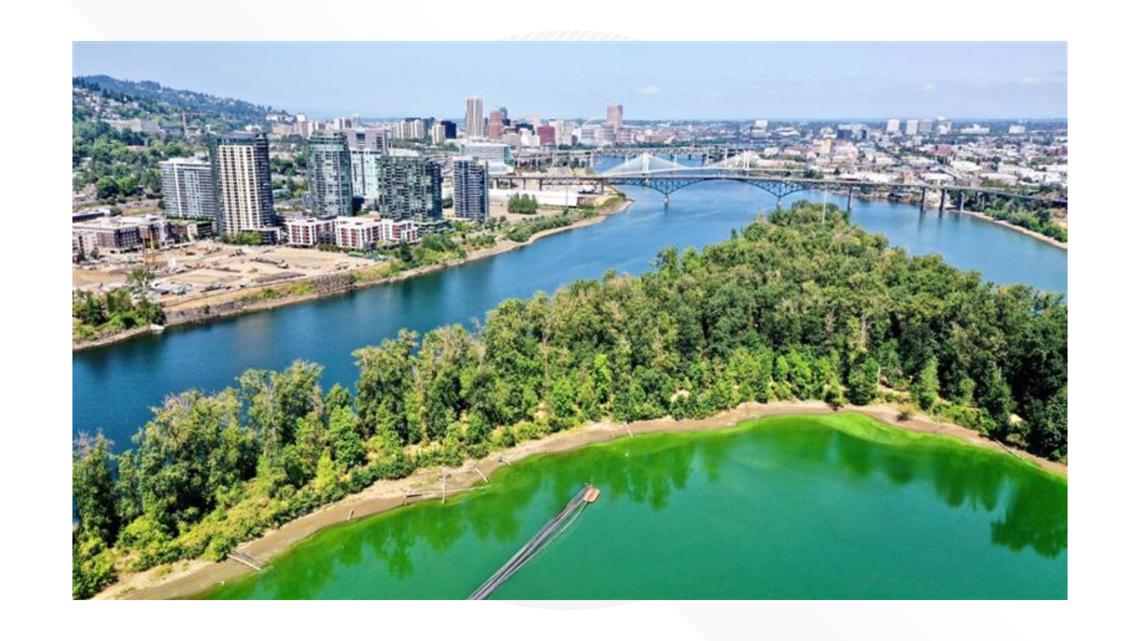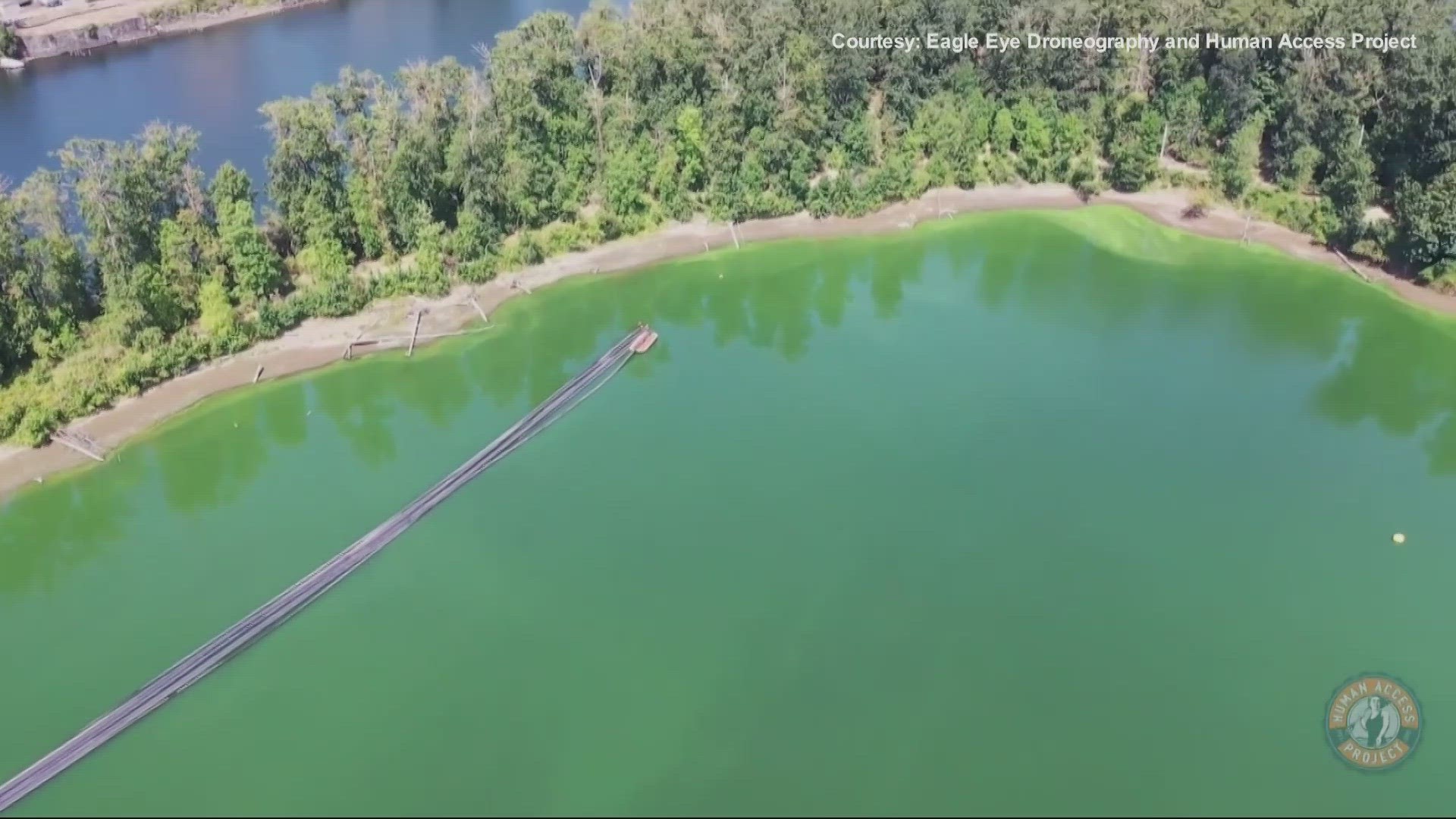PORTLAND, Ore. — An environmental group is suing Oregon's water quality regulatory agency, alleging that the state has allowed a company called Ross Island Sand & Gravel to worsen water quality in the Willamette River, producing harmful algae blooms.
The Northwest Environmental Defense Center filed a lawsuit against The Oregon Department of Environmental Quality for violating the Clean Water Act, which sets a goal to restore and maintain the chemical, physical and biological integrity of the nation's waters.
According to the lawsuit, the Willamette River has been classified by DEQ as "water quality limited," with Total Maximum Daily Loads for the parameters of dioxin, E.coli and mercury. The river has been listed by DEQ as impaired for temperature, dissolved oxygen, biocriteria, harmful algal blooms and cyanide, amongst other impairment pollutants.
Impairment pollutants limit and effect multiple beneficial uses of the Willamette, including aesthetic water quality, fishing, public domestic water supply, water contact recreation, fish and aquatic life.
“DEQ has the authority to impose certain conditions upon Ross Island in their reclamation activity to ensure that water quality, and what we use the water in the Willamette for, is protected so that the water quality doesn’t get worse,” said Mary Stites, the staff attorney at NEDC.
“And so, we believe that the existing issues in the Willamette, including the temperature, the existing turbidity, how aquatic life is able to live or not to live within the Willamette, is kind of at jeopardy because of the reclamation activity.”
Algae blooms are harmful to not just fish and wildlife, but to humans as well. They thrive in warm temperatures, nitrogen and little to no water circulation. The lawsuit states, at times, these blooms move from the lagoon out into the rest of the Willamette River.
"Right now we are challenging a very discreet aspect that the DEQ basically certified through what is called a 401 certification that the reclamation activity that is going on in the lagoon, and as it's being modified through the reclamation plan, will not harm the water quality of the Willamette River, and we challenge that conclusion," said Stites.
Willie Levenson is the ringleader of Human Access Project. He too is supporting this lawsuit against DEQ.
“This is a great move,” said Levenson. “We aren’t named in the lawsuit but we are supportive of it. DEQ is a really close partner of ours, so it’s really interesting to be on a position where we support a lawsuit against DEQ. But for me, it’s not about the people who work at DEQ who I believe are really committed to water quality...this is about the systems that are preventing stronger action from DEQ.”
Levenson has seen the harmful algae blooms firsthand. He helps put on the Big Float along the Willamette River over the summer. He tells KGW that in 2015 while preparing for the Big Float, the Willamette River started turning green.
“I had no idea what a harmful algae bloom was at that point,” said Levenson. “So I reached out to the Oregon Health Authority and DEQ and they informed me that it was a harmful algae bloom that can kill dogs — it can make people sick.”
He said he took a water sample and personally shipped it to the Midwest to test the water before the Big Float and found that the algae, at that time, wasn’t toxic.


Here’s what Levenson had to say about the most recent harmful algae bloom that was caught in this drone camera back in August of 2021:
"It was horrifying to see the extent of harmful algae bloom,” said Levenson. “But also it's so visceral when you see that. I think it does a really good job of helping people understand why it's so important to solve this problem and the most important thing to understand is — this is a solvable problem."
Levenson said he has been working with the Oregon State University since 2017 to look for engineering solutions to fix the lagoon. He said one possibility is putting in a channel through the island to help break the algae bloom up and bring more water flow to the areas affected.
The lawsuit isn’t asking for money from the DEQ. But wants them to take responsibility and fix the harmful algae bloom issue around Ross Island moving forward.
“I know that if the regulatory agencies use their will, and Ross Island uses their will, it can be reclaimed in a way that it will make it so that the public and the aquatic life can thrive.”
KGW reached out to DEQ. They said they’re reviewing the lawsuit, but cannot comment at this time.
You can read the full lawsuit below.

